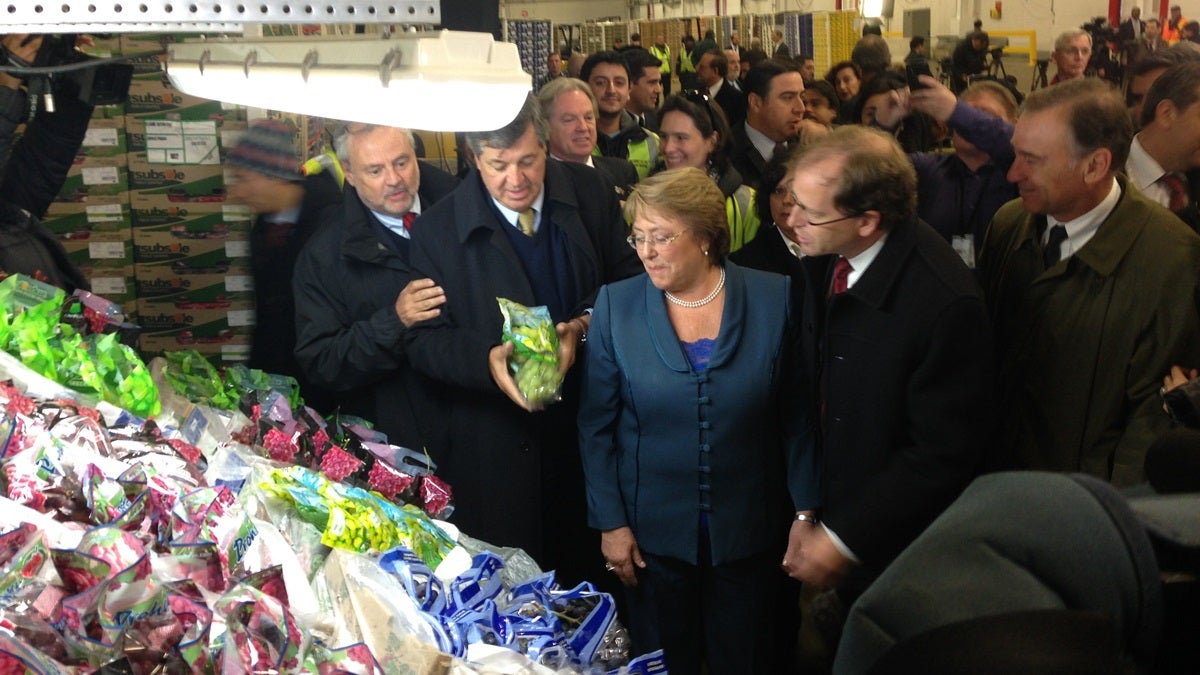Cultivating Delaware’s relationship with Chile (VIDEO)

Chilean President Michelle Bachelet examines Chilean fruit during a visit to the Port of Wilmington. (Mark Eichmann/WHYY)
The president of Chile visited the Port of Wilmington Tuesday, further solidifying the partnership between the First State and the South American nation.
Before being elected to a second term in 2014, President Michele Bachelet worked at the United Nations in New York. During that time, she would frequently purchase produce from her home country that had been delivered via the Port of Wilmington.
“I think it has been a great opportunity for me to see how this important port operates,” Bachelet said during her visit in Wilmington.
The Port of Wilmington is the nation’s leading port for imported fruit, especially from Chile. In 2014, the Chilean fruit business accounted for 167,000 pallets, $48 million in business revenue and $4.4 million in tax revenue for Delaware and the region, according to port officials.
“We are very satisfied with the relationship,” Bachelet said. “But we are convinced that we can do much more.” Bachelet and members of her cabinet met with Delaware Governor Jack Markell and other state leaders following the port tour. “To identify how we can expand trade.”
Gov. Markell was equally interested in furthering the trade relationship the state has with Chile. “Chile is something that is very deep in my heart,” Markell said.
Markell’s affection for the nation was spawned three decades ago, when he lived in Chile for about six months.
“I pledge to you here that all of us will do everything that we can to delight your growers, to expand upon the relationship and to make sure the people of Chile and the people of Delaware will benefit from our relationship for years and years to come.”
In addition to shipments of fruit, Chile also sends 30,000 to 50,000 tons of sodium nitrate, potassium nitrate and related chemicals through the Port of Wilmington for use in industrial, agricultural and solar energy applications. The port also receives Chilean salt which is used by DelDOT and others to keep Delaware’s roads safe during winter weather.
WHYY is your source for fact-based, in-depth journalism and information. As a nonprofit organization, we rely on financial support from readers like you. Please give today.





